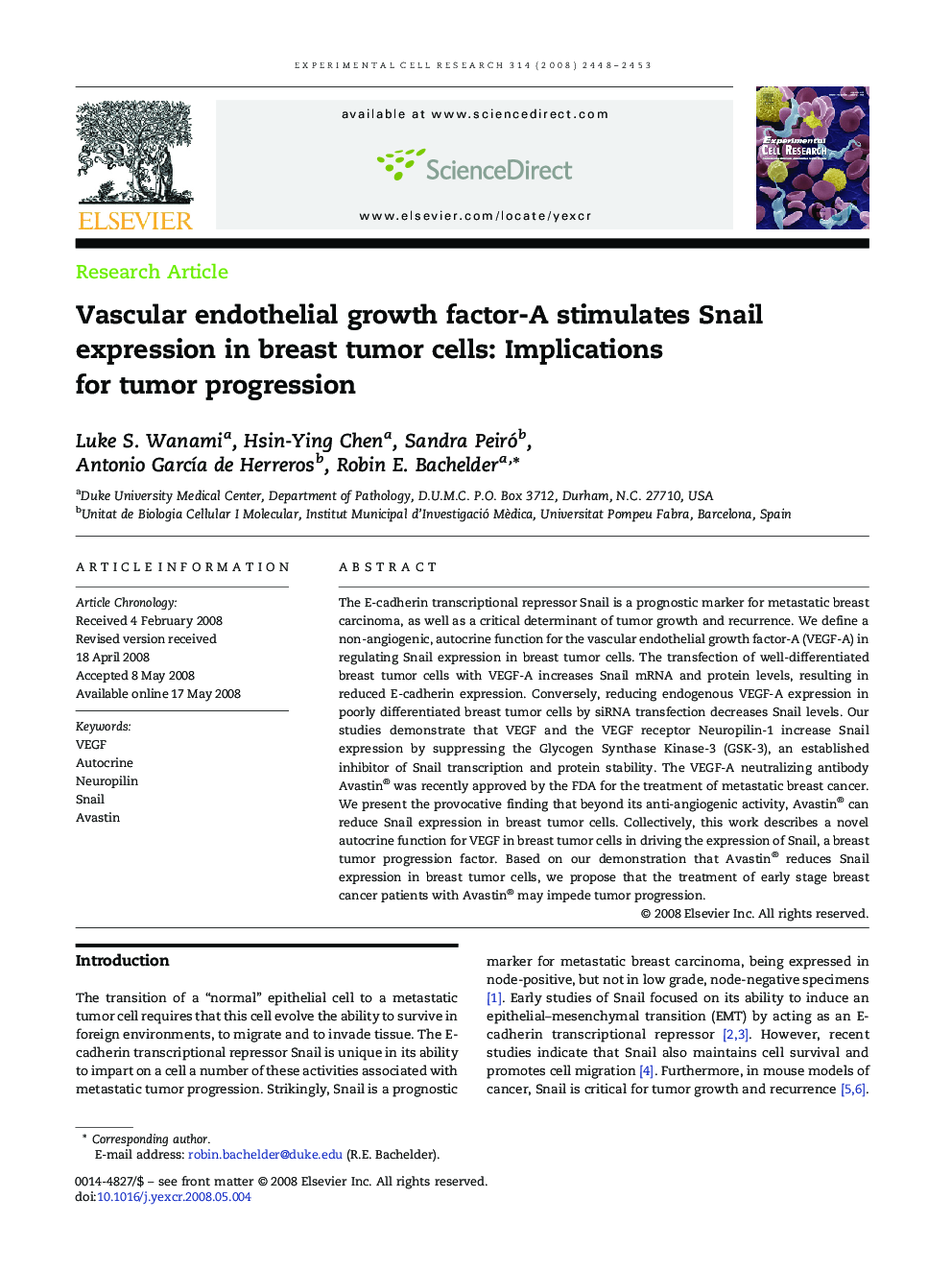| Article ID | Journal | Published Year | Pages | File Type |
|---|---|---|---|---|
| 2131943 | Experimental Cell Research | 2008 | 6 Pages |
The E-cadherin transcriptional repressor Snail is a prognostic marker for metastatic breast carcinoma, as well as a critical determinant of tumor growth and recurrence. We define a non-angiogenic, autocrine function for the vascular endothelial growth factor-A (VEGF-A) in regulating Snail expression in breast tumor cells. The transfection of well-differentiated breast tumor cells with VEGF-A increases Snail mRNA and protein levels, resulting in reduced E-cadherin expression. Conversely, reducing endogenous VEGF-A expression in poorly differentiated breast tumor cells by siRNA transfection decreases Snail levels. Our studies demonstrate that VEGF and the VEGF receptor Neuropilin-1 increase Snail expression by suppressing the Glycogen Synthase Kinase-3 (GSK-3), an established inhibitor of Snail transcription and protein stability. The VEGF-A neutralizing antibody Avastin® was recently approved by the FDA for the treatment of metastatic breast cancer. We present the provocative finding that beyond its anti-angiogenic activity, Avastin® can reduce Snail expression in breast tumor cells. Collectively, this work describes a novel autocrine function for VEGF in breast tumor cells in driving the expression of Snail, a breast tumor progression factor. Based on our demonstration that Avastin® reduces Snail expression in breast tumor cells, we propose that the treatment of early stage breast cancer patients with Avastin® may impede tumor progression.
